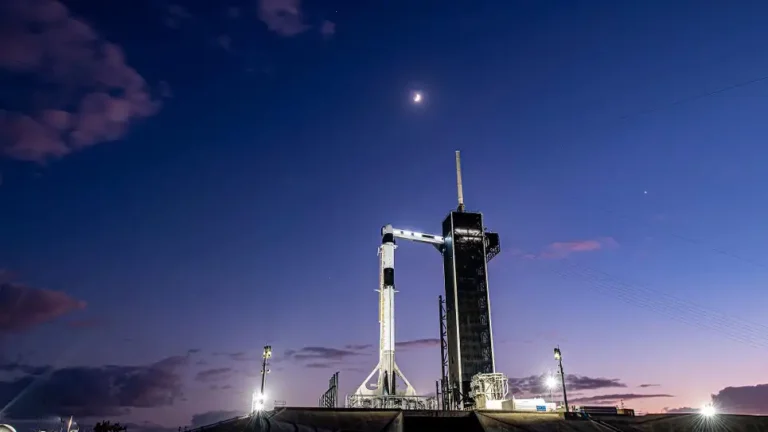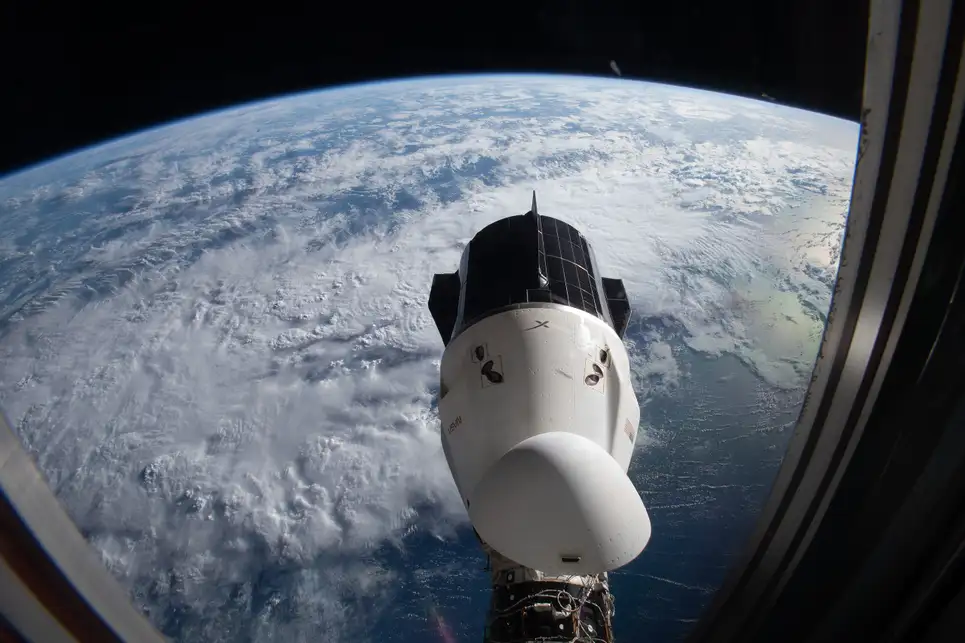Almost a month has been added to the delay of NASA’s SpaceX Crew-5 trip to the International Space Station owing to the breakdown of a Falcon 9 rocket undergoing shipment. The launching of the Crew-5 mission, the fifth in NASA’s Commercial Spaceflight Project, has been pushed back to no sooner than September 29.
The expedition was originally scheduled to begin in early September, thus the postponement has cost about a month’s worth of time. A NASA spokesperson says that the new timeline will give SpaceX enough time to finish assembling the equipment.
NASA has revealed that SpaceX is now in the process of prepping a Falcon 9 rocket for its first flight, but that a snag has caused some additional labor and a shift in launch timing.
Following suffering breakage while shipment from SpaceX’s manufacturing site in Hawthorne, California to the firm’s McGregor development plant in Texas for phase testing, the interstage as well as some internal equipment are being removed and replaced. NASA evaluated the results of the pressure, stress, and mechanical assessments performed by SpaceX, as well as the results of the thorough and X-ray examinations performed to check the stability of the rocket and confirm that the harm was contained to the interstage.
In other words, it doesn’t seem to be a major issue. However, the exact time and circumstances of the defected unflown booster’s transit are unknown. After the weak links have been replaced, the rocket would go through additional testing before it is approved for launch. The Falcon 9 spacecraft is also the first commercial spacecraft approved by NASA for transporting people to the ISS.
Houston, we have a launch date 🚀@NASA_Astronauts Nicole Mann and Josh Cassada, JAXA's Koichi Wakata, and Roscosmos cosmonaut Anna Kikina are going to the @Space_Station no earlier than Sept. 29. https://t.co/apUrx2YZEe pic.twitter.com/tzQyvOhi3b
— NASA's Johnson Space Center (@NASA_Johnson) July 22, 2022
With the launching now set for September 21, the manned Russian Soyuz MS-22 project would beat Crew-5 to the International Space Station. NASA astronaut Frank Rubio would ride in the spacecraft with Roscosmos cosmonauts Sergey Prokopyev as well as Dmitry Petelin. The astronauts Sergey Korsakov, Oleg Artemyev, and Denis Matveev would come back To earth aboard Soyuz MS-21.
Crew-5 comprises Anna Kikina of Roscosmos, Koichi Wakata of JAXA, as well as NASA scientists Josh Cassada, and Nicole Mann. A current seat-swap arrangement involving NASA and Roscosmos includes Rubio and Kikina.


